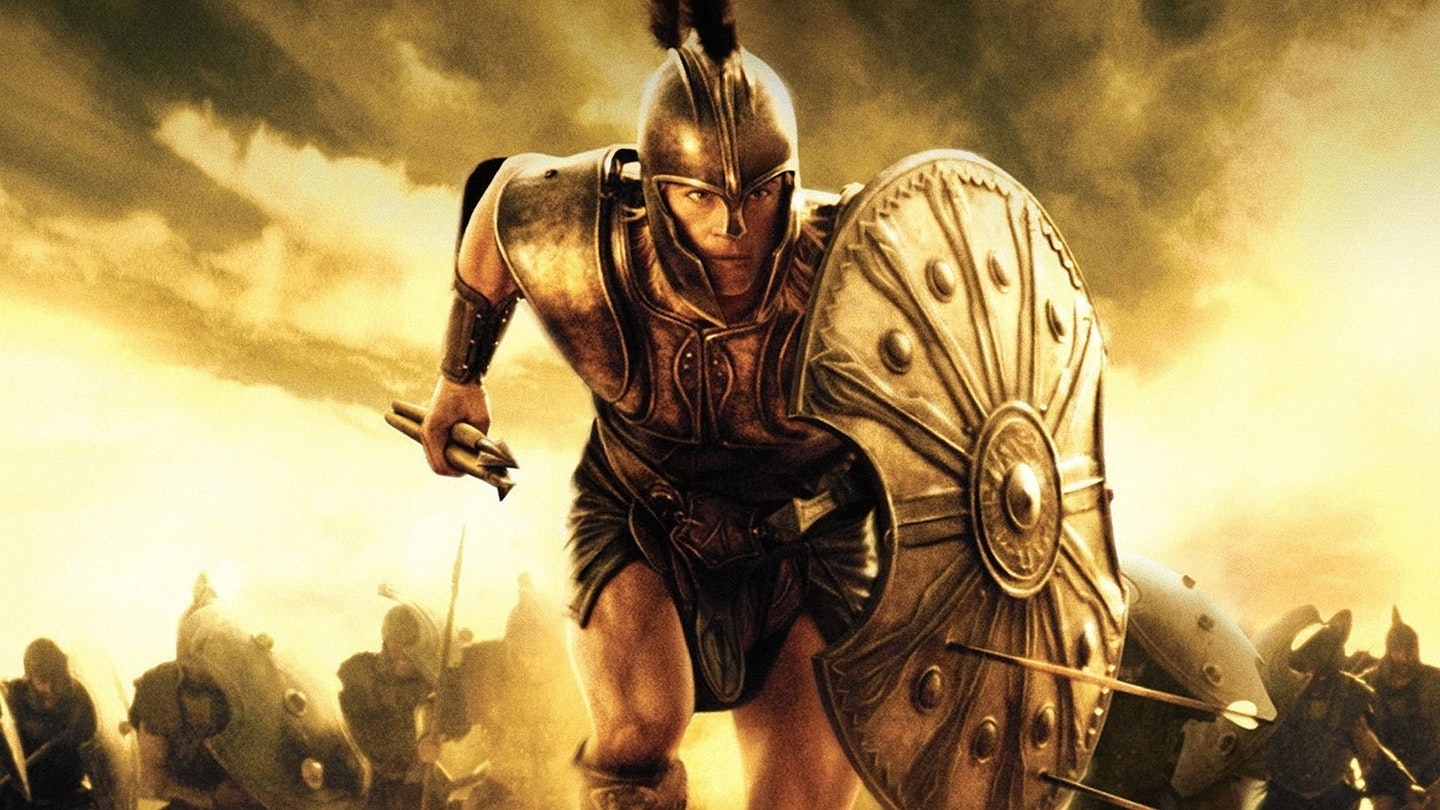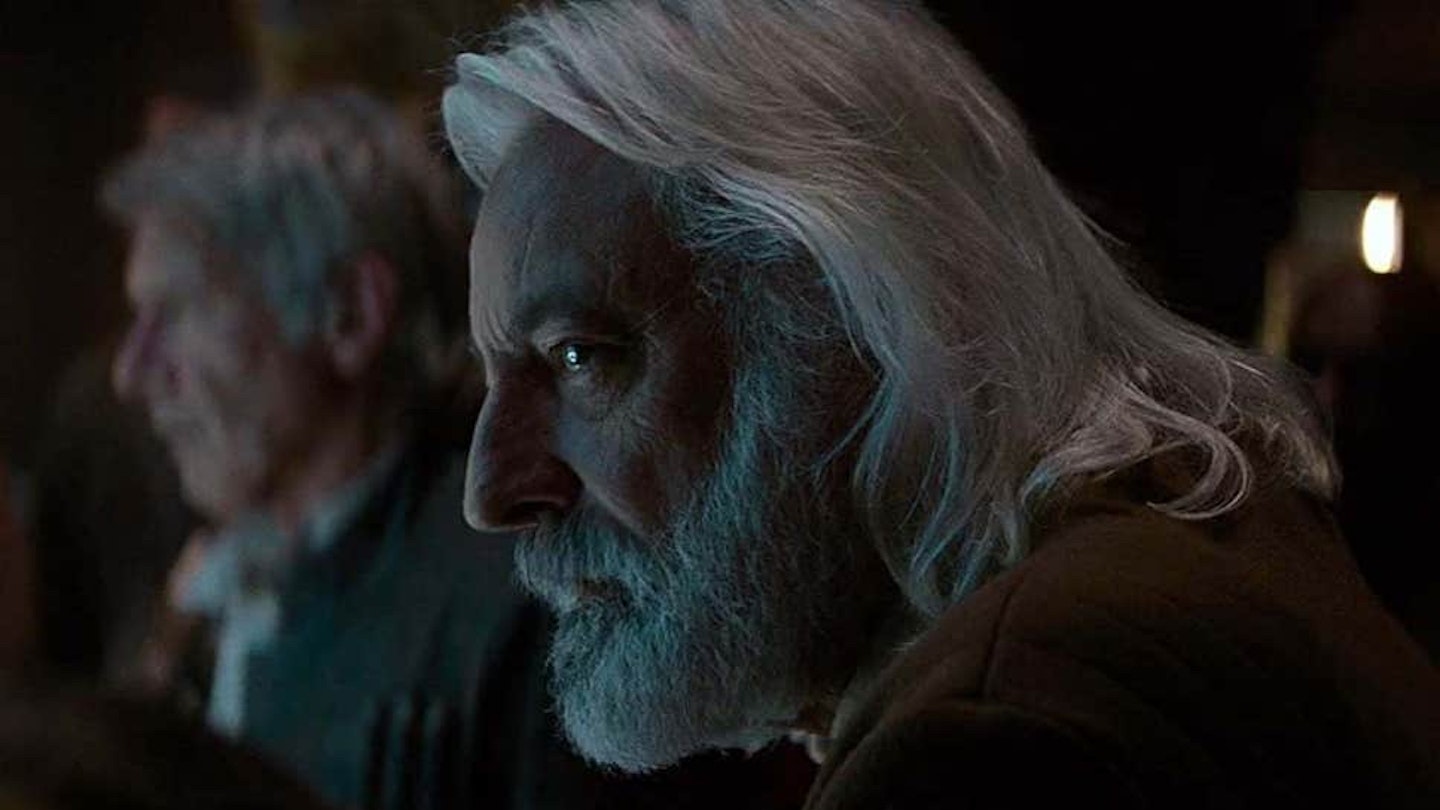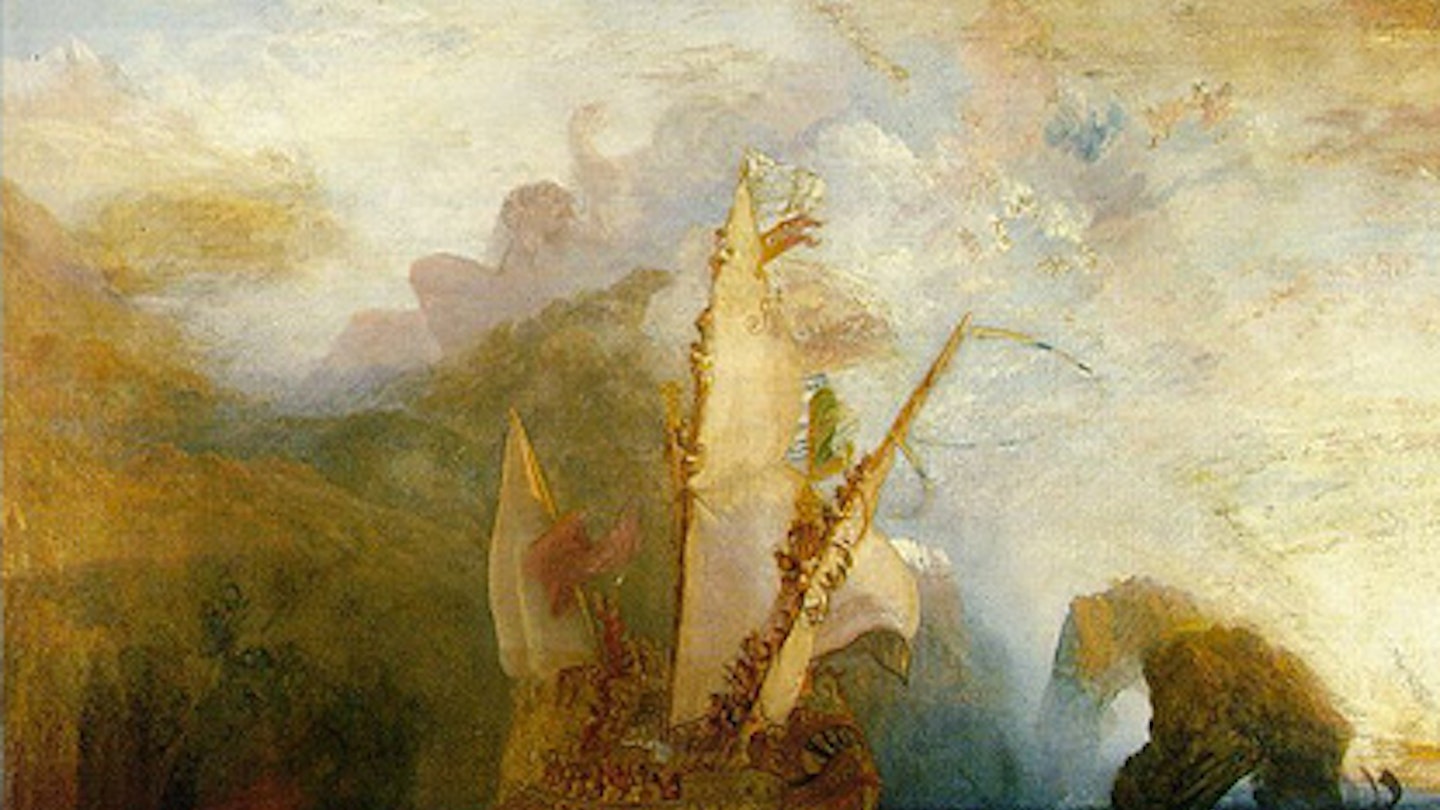As the carrion birds pick at the carcasses strewn across this summer’s box office battlefield, the fiscal hawks at Warner Bros will be hovering nervously overhead. They equipped Wolfgang Petersen with a $175 million-plus war chest to launch this film’s flotilla of famous faces and bludgeoning battle sequences, yet beneath its muscle-bound, armoured shell, Troy is as hollow as its wooden horse.
Which does not necessarily mean that Troy will get slaughtered at the international box office, but Petersen would have launched a far more effective assault if he had deviated still further from his Homeric source: Troy is undone by The Iliad’s central conceit, which is too anachronistic. The director appears aware of this fact, weaving into the substantial downtime between set-pieces repeated assertions of the reason for the war — Helen and Paris’ love — answering questions the audience has not raised, and thereby indicating a near-fatal lack of confidence in his source material.
That two powerful nations would go to war simply because Paris nicked Menelaus’ girl found firm foundation in the age the tale was originally told, as a natural extension of the hero-cult.
This ancient concept ensured that the intended audience perceived the Homeric hard-men as heroes first, Trojans or Greeks second, their actions expressions of a now-extinct ideology. Today, fighting a war for love and honour seems mawkish and leaves the modern audience wondering which side to cheer.
Petersen does expand Brian Cox’s delightfully spiteful Agamemnon, investing him with an imperial yearning that could have provoked the war. But the repeated affirmation of Paris and Helen’s love igniting the campaign dilutes this war-mongering subtext.
Similarly, The Iliad’s other great theme — the pathos of Achilles’ fate — also fails to translate, with Petersen unsure how to handle this delicate premise. Again, it was the notion of hero-cult that underpinned Achilles’ actions and Homer was facilitated in his tale by having the gods purvey his hero’s destiny, adding a divine note to the emotional chord. Petersen, quite rightly, omits the Olympians, only introducing Thetis, Achilles’ immortal mater, to relay her son’s fate. But her visit is so fleeting that the import of her message dissipates as the crescendo looms, burdening Pitt with an impossible task.
Pitt makes full use of his many close-ups, his intensely physical form and heroic posturing encapsulating Achilles’ enigmatic bravura, and if he fails to convince as the climax approaches, it’s only because his motivation has been made forfeit. By contrast, Eric Bana’s Trojan champion Hector, unshackled by Achilles’ lofty premise, swashes his buckle as an embodiment of nobility that does command empathy.
Orlando Bloom's simpering turn is ideal for Paris and Bean and O’Toole provide much of the epic gravitas. The women, however, are less effective, and while Diane Kruger’s Helen could launch a dinghy or two, she is far too insipid to launch a thousand ships. Which is a shame, as the thousand ships are a CG marvel, an example of Troy’s awesome production values. The moment the two armies clash outside the walls rivals any battle in LOTR, and the individual combat, especially between Hector and Achilles, is mightily impressive. Through simple, if striking, fight choreography, Pitt’s Achilles at last becomes a fully-realised cinematic take on a major hero.




